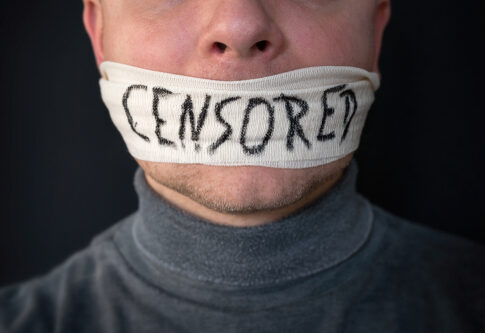The European Union's recent efforts to control online speech and combat disinformation through the Digital Services Act (DSA) are raising alarms in the United States, particularly among free speech advocates. The DSA, a comprehensive piece of legislation aimed at curbing hate speech and misinformation on digital platforms, has far-reaching implications, not just within Europe but also for American tech giants and potentially for the free speech rights of U.S. citizens.
The DSA imposes strict obligations on tech companies like Facebook, Google, and Twitter to monitor and remove illegal content, including hate speech and disinformation, within tight deadlines. Failure to comply could result in fines amounting to 6% of a company's global revenue. While the act is framed as a necessary measure to protect European citizens from harmful content, critics argue that it sets a dangerous precedent that could stifle free expression globally.
🇪🇺 Free speech no longer exists in Europe.
A lot of Americans don't know how bad things have gotten in Europe.
Politicians are being jailed for stickers, memes, and even tweeting Bible verses.
📽️ @njhochman shares some shocking stories from his recent essay on the topic: pic.twitter.com/5mjErc5krM
— America 2100 (@America_2100) March 18, 2024
One of the most contentious aspects of the DSA is its extraterritorial reach. Although the law is European, it applies to any online platform that operates in the EU, meaning that American companies are required to comply with European standards, even if those standards conflict with U.S. free speech protections under the First Amendment. This has sparked fears that the DSA could serve as a backdoor for regulating speech in the United States, with European norms being imposed on American users.
Proponents of the DSA argue that the law is necessary to hold tech giants accountable and to create a safer online environment. They point to the rampant spread of fake news and hate speech during events like the COVID-19 pandemic and the 2016 U.S. presidential election as evidence that stronger regulation is needed. European lawmakers have defended the act as a balanced approach that respects freedom of expression while protecting citizens from harmful content.
With Scotland's recent hate speech law, Europe is getting closer to completely eliminating the right to freedom of speech.
This anti-free speech movement is now being pushed overseas to America. We cannot allow even an inch more of this. pic.twitter.com/mZtxx5BLnd
— EU-US Forum (@EUUSForum) April 3, 2024
However, opponents view the DSA as an overreach that could lead to censorship and the erosion of free speech rights. They argue that the law's broad definition of illegal content and the tight removal deadlines could force platforms to err on the side of censorship, removing content that is controversial but not illegal. This could have a chilling effect on free speech, particularly for marginalized voices and those with dissenting opinions.
The DSA's potential impact on American free speech has not gone unnoticed by U.S. lawmakers and free speech advocates. Some have expressed concern that American companies, in an effort to avoid hefty fines, might preemptively censor content, not just for European users but globally. This could lead to a situation where European standards, which tend to favor more regulation of speech, become the de facto standard for online content moderation worldwide.
Moreover, there is growing concern that the DSA could embolden U.S. lawmakers to pursue similar regulations. Already, there have been calls for greater oversight of social media platforms in the U.S., particularly in the wake of recent controversies over content moderation and the spread of disinformation. The DSA could provide a blueprint for those advocating for stricter controls on online speech in America.
Critics of the DSA warn that it represents a broader trend of governments seeking to control speech online, often under the guise of protecting citizens from harm. They argue that this trend, if left unchecked, could lead to a future where free expression is increasingly curtailed by both governments and private companies, with significant implications for democracy and individual liberty.


